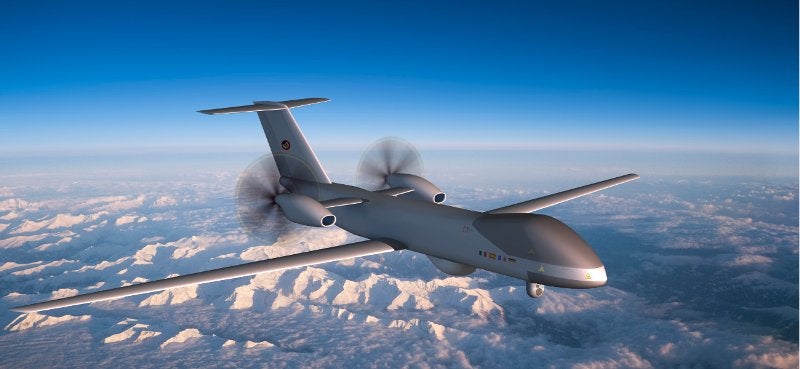
The European medium altitude long endurance remotely piloted aircraft system (MALE RPAS) programme has successfully completed the system preliminary design review.
This milestone will move the programme into system development.
MALE RPAS programme is managed by the European procurement agency OCCAR. France, Germany, Italy, and Spain are participating in the drone programme.
The unmanned aerial system will be used by the armed forces of the four countries. Designed for flight in non-segregated airspace, it will be integrated with a future-proof intelligence, surveillance, target acquisition and reconnaissance (ISTAR) function.
Featuring a twin-turboprop propulsion system, the RPAS will be capable of performing long-endurance ISR missions, both wide area and in-theatre, with a variety of payloads, as well as ground support missions with precision weapons.
The first prototype will be ready to fly in early 2023, with a planned delivery in 2025. The system is expected to start operating by the mid-2020s.
In May 2015, a declaration of intent (DoI) was initially signed by three countries to partner on the European MALE unmanned aerial system. Spain joined the effort in 2016. All nations agreed on the air vehicle configuration in mid-2017.
On 26 August 2016, a definition study contract was signed with the European aircraft manufacturers Airbus Defence and Space, Dassault Aviation and Leonardo.
Airbus Defence and Space is the designated future prime contractor that will manage the industrial response to the invitation to tender (ITT). Through this, the four states will give proof to continue with the programme.
The company was invited on 31 October to submit a tender for the development, production and initial in-service support phase of the programme.



